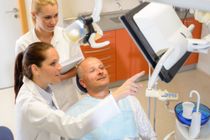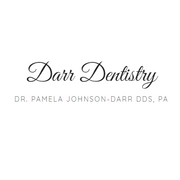
Taking care of your teeth is an investment in your health, and grinding them in your sleep causes multiple problems. While you need to see an experienced dentist for diagnosis, learning more about the condition—also known as bruxism—may help you understand what’s going on in your mouth. Below are the answers to four frequently asked questions about bruxism.
Important FAQ About Bruxism
What is bruxism?
This term refers to the condition where you grind your teeth, most often in your sleep. There are several things that are thought to cause bruxism, including stress, dental irritants like malocclusions, and sleep apnea. People who have bruxism often don’t realize it because they’ve stopped before waking up.
Why is it harmful to teeth?
Grinding or gritting your teeth against each other applies a great deal of pressure to them, your gums, and your jawbone. Untreated bruxism leads to dental damage like loose, chipped, cracked, and abnormally worn teeth, affecting your bite and ability to speak. If severe damage occurs, dental crowns can help protect the tooth from further damage, but they’ll likely be damaged by the bruxism if it’s not corrected.
How do I know if I grind my teeth?
 There are a few symptoms you should keep an eye out for. Waking up with a headache most mornings is a clear sign, especially if accompanied by feeling unrested. Jaw pain and TMJ (temporomandibular joint) issues are also signs of bruxism, as the muscles, joint, and bone are put under immense stress. The pressure can also cause enamel to crack and your tooth to suffer excessive wear, which result in toothaches and increased sensitivity. All of these symptoms can be attributed to other common conditions, so the only way to be sure you grind your teeth is to see your dentist.
There are a few symptoms you should keep an eye out for. Waking up with a headache most mornings is a clear sign, especially if accompanied by feeling unrested. Jaw pain and TMJ (temporomandibular joint) issues are also signs of bruxism, as the muscles, joint, and bone are put under immense stress. The pressure can also cause enamel to crack and your tooth to suffer excessive wear, which result in toothaches and increased sensitivity. All of these symptoms can be attributed to other common conditions, so the only way to be sure you grind your teeth is to see your dentist.
What are the treatment options?
Treating bruxism is often a multi-step approach between you, your dentist, and potentially other professionals. The first step of treatment involves being fitted for a nightguard by your dentist to prevent further damage to your teeth. You’ll then begin working together to determine and correct the cause of your bruxism. If the cause is dental in nature—such as malocclusion or improperly placed dental crowns—they’ll be able to correct it. If stress is the cause, you may need to develop more coping mechanisms or seek professional guidance.
Since 1999, Darr Dentistry in Thomasville, NC, has provided advanced dental services you can trust. Their experienced dentist offers total care, from dental crowns to wisdom tooth extraction to bruxism management. Their office keeps up with modern advancements, including same-day crowns, and they pride themselves on their attentive and gentle approach. Learn about their services online and call (336) 475-1614 to arrange a consultation.
About the Business
Have a question? Ask the experts!
Send your question

